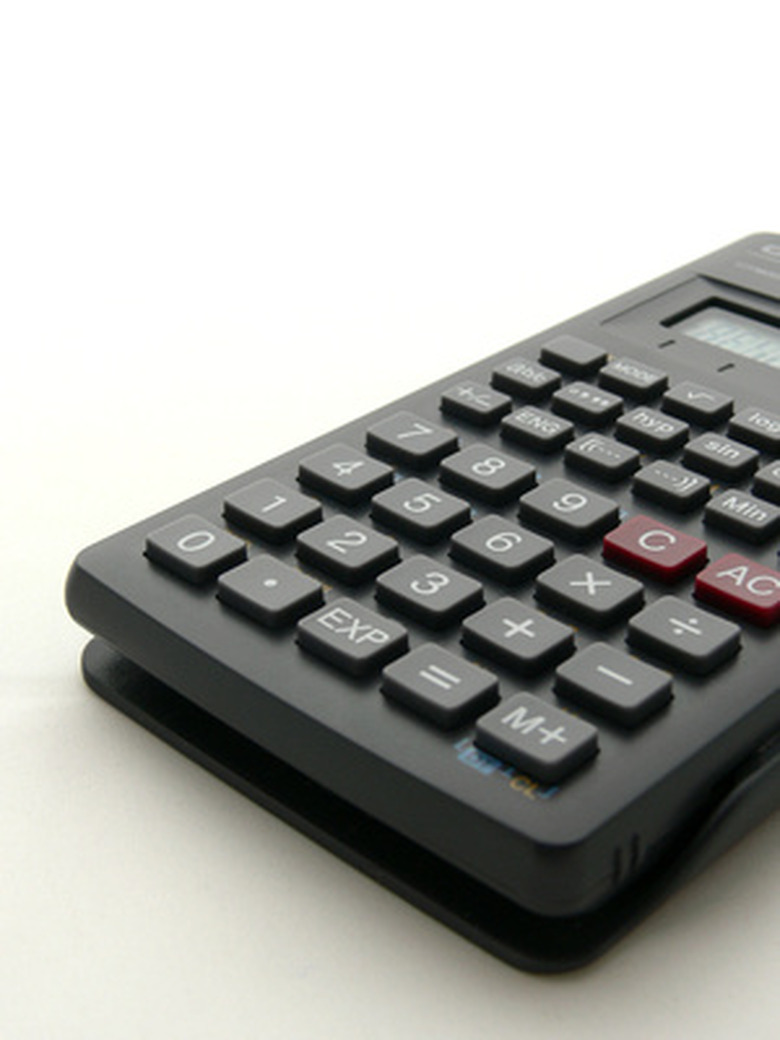How To Calculate An RMS
The Root Mean Square, or quadratic mean, is a statistical function for finding the average of a series even if it contains negative numbers. When you have a series with negative numbers, the normal formula for averaging — adding all the numbers and dividing by the number of numbers — will give you the "middle value," but it won't give you a sense of the average magnitude. RMS tells you how big the average number is, no matter which side of the number line it's on. Most real-world RMS problems must use calculus, but you can find the RMS of a small series with basic math and a calculator.
Step 1
Count the number of numerals you are finding the RMS for. For example, if you have the series 5, -3 and -7, you have three numerals.
Step 2
Square each of the numbers, either in your head or with a calculator. Write each one down on a piece of paper as you go so you don't lose track of them. For example, the squares of 5, -3 and -7 are 25, 9 and 49.
Step 3
Add all the squares together. For our series, 25 + 9 + 49 = 83.
Step 4
Divide the sum of the squares by the number of numbers. 83 divided by 3 is 27.67.
Step 5
Take the square root of the sum divided by the number of numbers. The square root of 27.67 is 5.26, so for the series 5, -3 and -7, the RMS is 5.26.
Cite This Article
MLA
Gronot, Amanda. "How To Calculate An RMS" sciencing.com, https://www.sciencing.com/calculate-rms-5104500/. 24 April 2017.
APA
Gronot, Amanda. (2017, April 24). How To Calculate An RMS. sciencing.com. Retrieved from https://www.sciencing.com/calculate-rms-5104500/
Chicago
Gronot, Amanda. How To Calculate An RMS last modified March 24, 2022. https://www.sciencing.com/calculate-rms-5104500/
